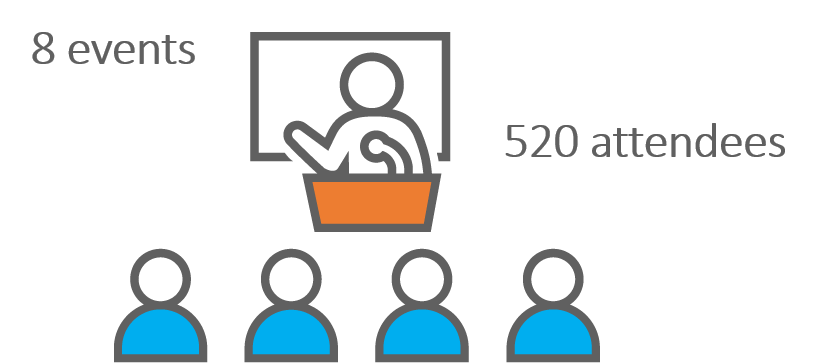RES ANNUAL SUMMARY 2017
The Spanish Government created the Spanish Supercomputing Network (RES, Red Española de Supercomputación) in July 2006, in response to the need of the Spanish scientific community for intensive calculation resources.
The RES is a Unique Scientific and Technical Infrastructure (ICTS) distributed throughout Spain, which aims to support the development of top-quality cutting-edge research. In 2017, the RES comprises 13 nodes and 12 institutions, and it is coordinated by the Barcelona Supercomputing Center (BSC-CNS).
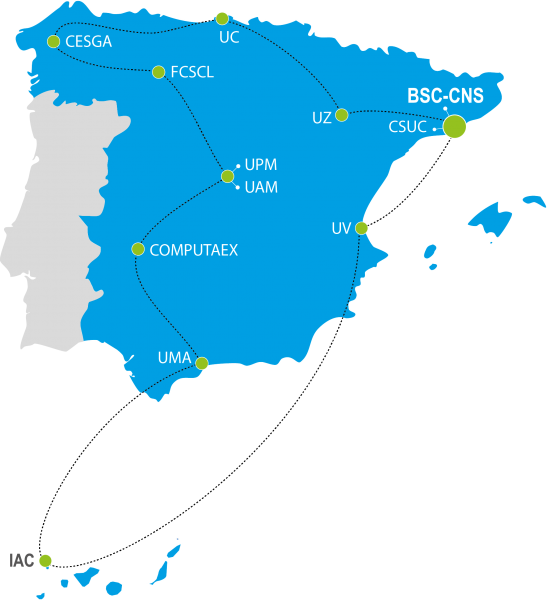
Update of MareNostrum
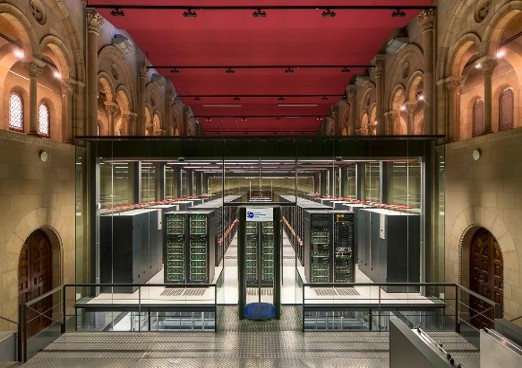 MareNotrum 3, the main supercomputer of the RES, was switched off on March 2017 after five years of activity. The racks of this machine were distributed among several RES nodes (Universitat de València, Instituto de Astrofísica de Canarias, Universidad de Cantabria, CénitS-Computaex, Universidad de Málaga y Universidad Autónoma de Madrid) were they will continue offering computing resources to RES users.
MareNotrum 3, the main supercomputer of the RES, was switched off on March 2017 after five years of activity. The racks of this machine were distributed among several RES nodes (Universitat de València, Instituto de Astrofísica de Canarias, Universidad de Cantabria, CénitS-Computaex, Universidad de Málaga y Universidad Autónoma de Madrid) were they will continue offering computing resources to RES users.
MareNostrum 4 started operation on 1st July 2017 and it is 12 times more powerful than its predecessor. It offers to RES users about 60 million CPU hours per quarter.
Read more information about MareNostrum in www.bsc.es/marenostrum
Computing power
The RES nodes provide a percentage of their total computational power to RES users. The total computational power of RES machines in 2017 is up to twelve PFlops.
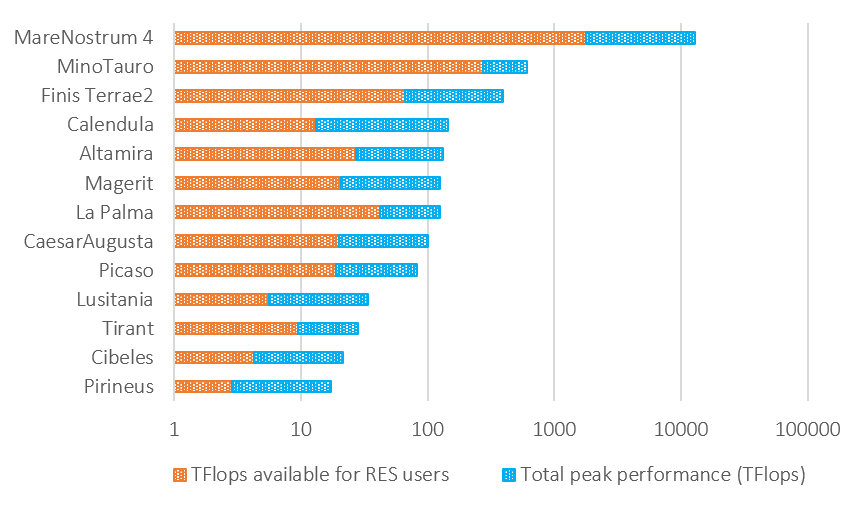
Resources granted
IIn 2017, the RES provided more than 120 million computing hours to 235 research activities.
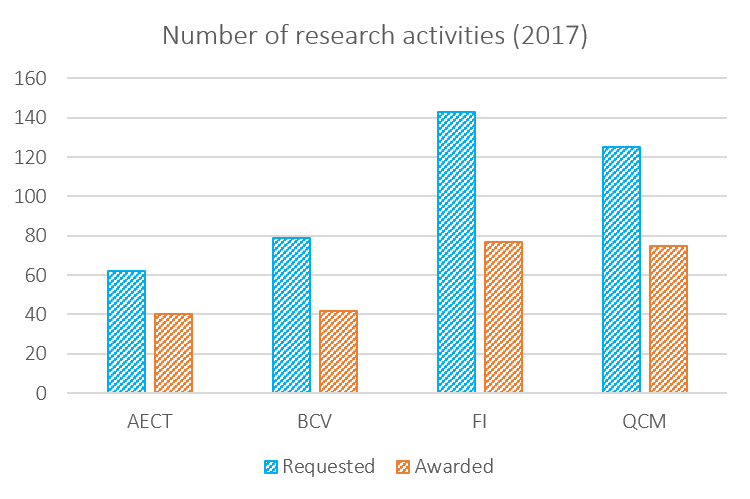
Since 2006, the computing power offered by the RES has increased continuously. The demand of resources always exceeds the computing time available.
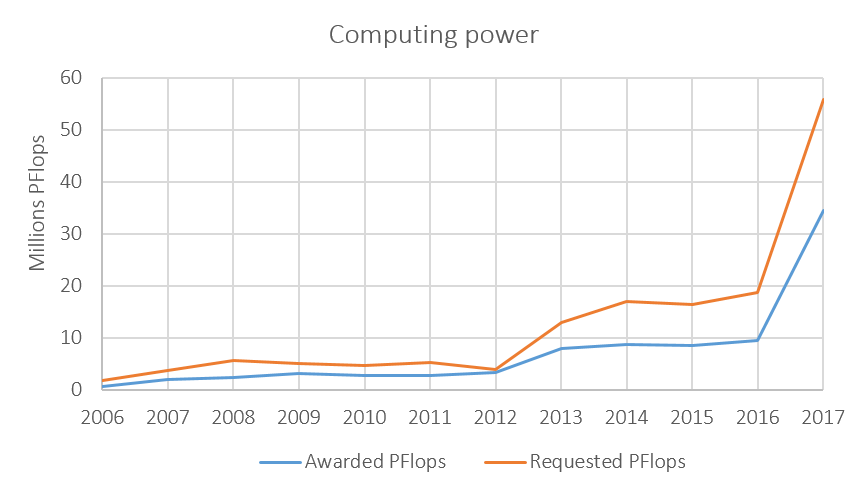
More information about the research activities carried out in RES supercomputers: www.bsc.es/res-intranet/abstracts
Research results
RES users have published 152 articles in scientific journals in 2017.
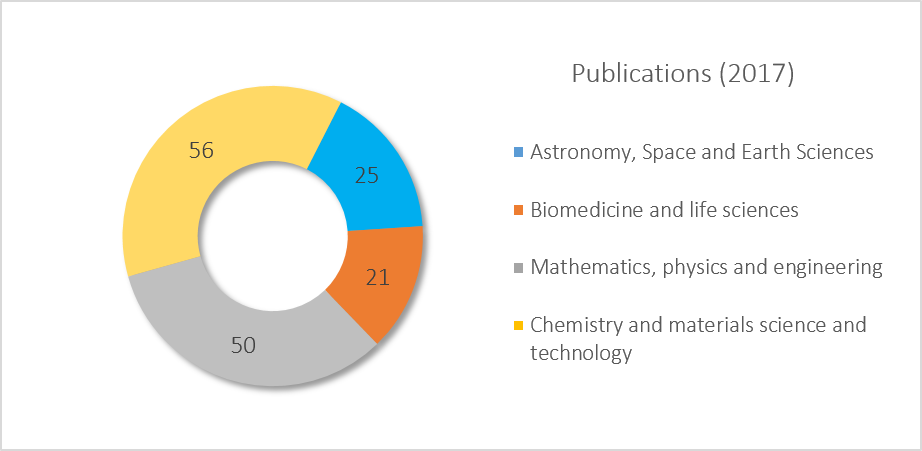
More information about scientific publications in: www.res.es/en/research/publications
Events
In 2017, the first call for proposals to organize scientific workshops was launched. As a result, more than 300 researchers attended the five selected workshops sponsored by the RES.
- Next Generation Sequencing and supercomputing, life as a couple. 11 May 2017, Madrid.
- Massive computation for ultrafast molecular breaking (MACUMB 2017). 25 May 2017, Madrid.
- HPC Combustion Workshop. 2 June 2017, Barcelona.
- Computación de Altas Prestaciones y modelización de ciencias de la atmósfera y el océano. 18 July 2017, Santiago de Compostela.
- Servicios Marinos y Supercomputación: experiencias y retos futuros. 27 September 2017, Santiago de Compostela.
The RES User’s Annual Meeting took place on September 28 in Santiago de Compostela and gathered more than 120 participants.
The RES Technical Workshop, addressed to RES technical staff, took place in La Palma in December 2017. In addition, the RES organized the event Towards RDA Iberia (4 April 2017, Barcelona), which laid the foundations for the regional initiative RDA Iberia and gathered the main research data stakeholders in Spain and Portugal.
